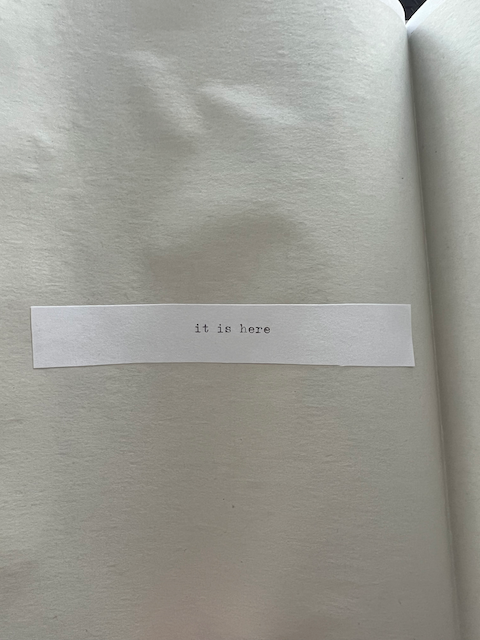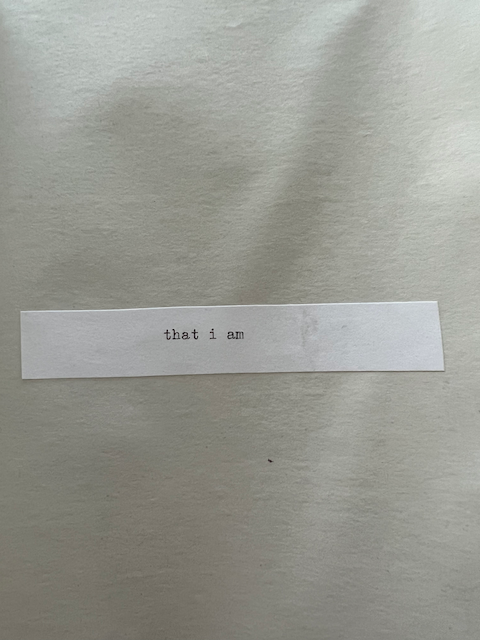I recently had the pleasure to, once again, attend a Rebel Art Club event. For those of you not familiar with this clandestine organisation, we are a group of (somewhat) creatives that meet on-line from time to time to share our artistic response to a particular brief. I have covered previous meetings here and there in the past. The latest of these events centred around the idea of ‘fucking up a book’. That was it. We could use any book and we could ‘fuck it up’ in any way we chose.
The book I selected was one we had had on our bookshelf for many years: Philosophy for Beginners by Richard Osborne. Historically, Anne referenced the contents for elements of her Theology degree. Since then it has remained on the shelf largely untouched. That was until I started ‘getting into philosophy’ a bit. Previously, the only philosophical book – as defined by it being written by an actual philosopher – I had read was ‘The Philosopher and the Wolf’ by contemporary philosopher Mark Rowlands. My interest in this book was as much about how he trained his wolf (we had just acquired out first family dog Peppa) as it was with the philosophical ideas. One thing led to another as they do (I am a determinist after all) and it wasn’t long before I started thumbing through Philosophy for Beginners by Richard Osborne.
I should like to say at this point that I am not anti-philosophy and my decision to fuck this book up was not based on some deep seated dislike of thinkers and the thoughts – it’s not them, it’s me!
My problem was that I was starting to become a little obsessed with philosophers and their ideas. I felt I needed to understand how various thinker’s thoughts fitted into the ideas of those that preceded or followed them and I was using Richard Osborne’s Philosophy for Beginners (and a bit of Wikipedia of course) to help me in my quest. The difficulty I found with this approach was that it was somewhat abstract in that I had no context in which to place the ideas I was reading. Osborne did an excellent job of chronicling the thinkers and their ideas but presented them discretely and in a way that I found hard to retain. Indeed it was only when I read other books that referenced these philosophers that I was able to gain any real insight into the ideas they were espousing.
A good example of this was Adam Nicholson’s ‘The Sea is Not Made of Water’ (recently reissued with a different title of ‘Life Between the Tides’). The book details Nicholson’s creation of 3 rock pools near his West Scotland home and his subsequent observations of their much varied inhabitants. Through this he referenced Iris Murdoch and, in more detail, Martin Heidegger. Obviously, after ‘studying’ these two via the pages of the Philosophy for Beginners, there wasn’t much I didn’t know about either…. It was like the first time I had encountered either and reading Nicholson’s interpretations of Heideggers ideas of being with and caring for what he encountered in the ponds was both revelatory and compelling. Even more so, dare I say it, than Richard Osborne’s attempts to do the same in Philosophy for Beginners
I realised that the best way, for me, to understand the ideas in what we call philosophy, was not to try to understand those ideas in an abstract way but to approach them through other ways, through life.
And so I took Richard Osborne’s Philosophy for Beginners, I opened it roughly half way through and I glued all the pages from each half together and on the remaining 2 pages I pasted in my own philosophy. On them I typed:
it is here
that I am




And, in case I ever forget where ‘here’ was I created this bookmark. These three sentences are now my own philosophy for life in my own Philosophy for Beginners book.
